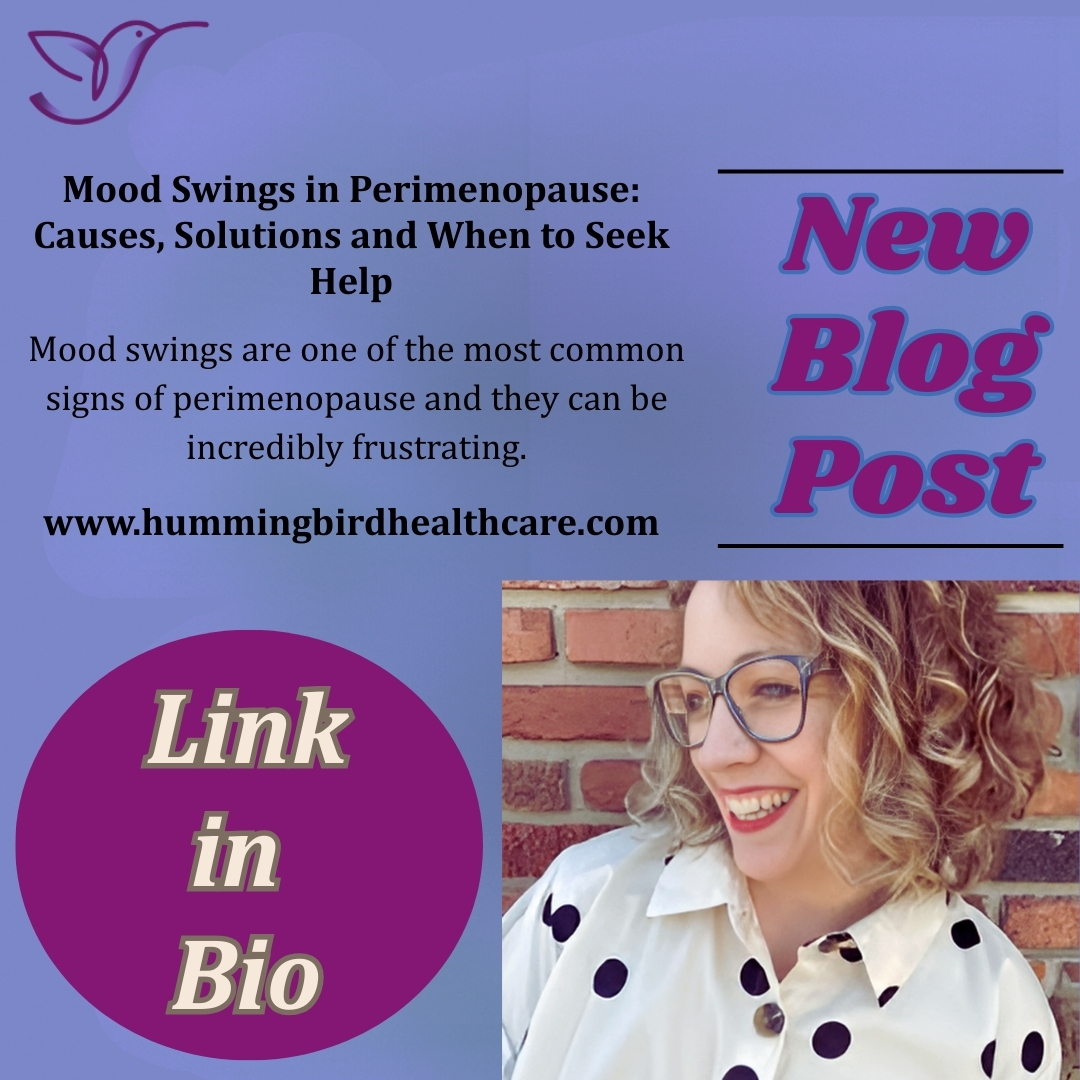The only constant in life is change - Heraclitus
Have you ever felt like your emotions are riding a rollercoaster and you are not the one in control? One moment, you are fine. The next, you are snapping at someone, crying over nothing, or feeling totally overwhelmed. If this sounds familiar, you are not alone.
Mood swings are one of the most common signs of perimenopause and they can be incredibly frustrating. But here's the good news: there are real reasons for how you are feeling and real ways to feel better. As a trusted perimenopause specialist, we help women understand what’s happening in their bodies and support them in finding balance again.
Let’s talk about why these mood swings happen. What can help and when it might be time to reach out for support.
What Is Perimenopause?
Perimenopause is the stage before menopause when your hormones start to shift. It can begin in your late 30s or early 40s and last anywhere from a few years to over a decade.
During this time, levels of estrogen and progesterone go up and down. Sometimes suddenly. This can cause a range of symptoms like irregular periods, hot flashes, trouble sleeping and emotional ups and downs.
It’s not just AII IN YOUR HEAD. Your body is changing and your brain is feeling those changes, too.
How Doctors Figure Out Perimenopause
Perimenopause is a slow change before menopause, and spotting it isn’t easy. No single test says, “You’re in perimenopause!”
Instead, your doctor looks at your age, periods, and symptoms like mood swings or hot flashes. They may check your hormone levels with a blood test, but these levels jump around a lot, so they’re not always helpful. A thyroid test might be done to check if something else is messing with your hormones.
Why Do Mood Swings Happen During Perimenopause?
1. Changing Hormones
Your hormones especially estrogen, play a big role in how you feel emotionally. Estrogen helps regulate serotonin, the “feel-good” chemical in your brain. When estrogen drops, so can your mood. You might feel sad, anxious, or more easily irritated than usual.
2. Poor Sleep
Perimenopause often brings night sweats, insomnia, or restless sleep. When you are not sleeping well, it’s harder to manage emotions. Everything feels harder when you are tired.
3. Physical Discomfort
Hot flashes, headaches, weight changes and fatigue can make anyone feel off. These physical symptoms can add extra stress, making your mood even harder to manage.
4. Life Stress
For many women, this stage of life also comes with added pressure. Raising kids, helping aging parents, or dealing with career changes. When you mix life stress with hormone changes, it’s no wonder emotions feel out of control.
What Do Mood Swings Look Like?
Not every woman experiences mood swings the same way. Some common emotional symptoms include:
- Feeling irritated over small things
- Anxiety or panic out of nowhere
- Crying more easily than usual
- Feeling low or hopeless
- Brain fog or trouble focusing
- Mood changes tied to your menstrual cycle
If you’ve noticed yourself asking, Why am I feeling this way? Perimenopause could be the answer.
How a Perimenopause Specialist Can Help
You don’t have to suffer through this alone. As a perimenopause specialist, we take the time to understand what you are going through. Not just physically, but emotionally too.
At Hummingbird Healthcare, we offer personalized care based on your body’s needs, not just a one-size-fits-all solution.
Here’s how we support you:
1. Bio-Identical Hormone Replacement Therapy
Hormone therapy is often one of the most effective ways to ease mood swings. We use bio-identical hormones that are specially compounded to match your body’s natural hormones. This helps restore balance gently and safely.
When your hormones are in better balance, your mood often improves too.
2. Supportive Nutrition
Food can have a big impact on mood. We help you choose foods and supplements like magnesium, B vitamins and omega-3s that support your brain, balance blood sugar and help regulate hormones naturally.
3. Better Sleep, Better Mood
Sleep is everything. We’ll work with you on simple ways to improve your sleep like calming nighttime routines, managing night sweats and supporting your nervous system so you can rest more deeply.
4. Tools to Manage Stress
We may suggest mindfulness, breathing exercises, or gentle movement like yoga or walking. These small changes can lower stress hormones and help you feel more grounded.
We can also guide you toward talk therapy or cognitive tools that can help shift negative thoughts and bring back emotional strength.
When Should You Get Help?
Mood swings during perimenopause are common but that doesn’t mean you have to live with them. Please don’t wait until it feels like too much.
It’s time to reach out if:
- You feel out of control emotionally
- Your mood is affecting your work or relationships
- You are avoiding things you used to enjoy
- You are dealing with anxiety or panic attacks
- You just don’t feel like yourself anymore
These are signs your body and mind are asking for help and help is available.
You are Not Alone And You Deserve Support
Perimenopause can feel like a wild storm, with mood swings and changes that shake you up. But you don’t have to face it alone. With the right help you can feel steady and like yourself again. At Hummingbird Healthcare, we provide kind, science-based care to guide you through this time with strength and clear answers.
You deserve to feel good. This blog shares how our trusted specialists support you with simple steps to manage perimenopause.
Ready to take control and feel better? Learn how to start your journey with Hummingbird Healthcare and book your first visit today. Let’s face this together and help you shine again!
Also Read: What Every Woman Should Know About Hormone Support





